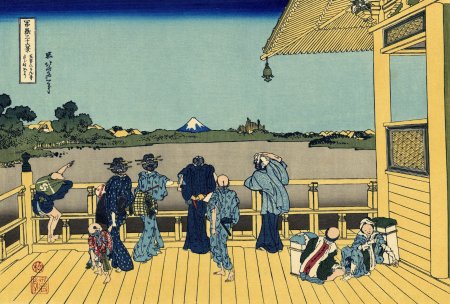or
How I Survived Miraculously While Almost Nobody Died


By C. W. Porter
In the post-war Japanese film Rashomon an event takes on radically different shape when seen through the eyes of different people, including the ghost of a dead woman.
In the Tokyo Trial transcript, a similar phenomenon may be observed.
(Prosecutor, International Military Tribunal for the Far East, 3 January 1947).
“These two affidavits describe the conditions under which prisoners lived at Hoten Camp near Mukden. Over two hundred inmates died of malnutrition, lack of medical care, and lack of fuel. The buildings were inadequately heated although plenty of coal was available for issue. During the first month and a half the prisoners received maize and Chinese cabbage soup and two sour buns a day. The food was frequently so contaminated that the prisoners could not eat it. All requests for additional food, fuel and medical supplies were refused...” (pp. 14,188).
“Deponent states that during the first few months he was at Mukden Camp about 250 American prisoners died either from starvation or dysentery. No medical care supplies were available. The food consisted of maize and soy beans.
“The prisoners worked in nearby factories making steel helmets for the Japanese army, airplane parts and gears for large calibre guns. Deponent worked in a steel mill sixteen hours a day. During his stay in Mukden Camp as a result of the hard work and poor food, he lost over sixty pounds in weight” (pp. 14,194-5).
“Deponent was confined at Camp Hoten, Mukden. The camp was about six hundred yards from a large Japanese ammunition factory. There was no designation on the prisoner of war camp. During a B29 air raid nineteen prisoners were killed and about thirty were injured” (pp. 14,193-4).
(Excerpts from two Reports published by the International Red Cross in Geneva; (i) From the Report of January 1944; an Extract from the Report filed by Max Pestalozzi, a Representative of the ICRC, following his inspection of the Mukden Prisoner of War Camp at Mukden, Manchuria (Manchukuo), on November 13, 1943, (ii) From the Report of March 1945; an Extract from the Report filed by Mr. Angst, a Representative of the ICRC, following his Inspection of the same Camp on 6 December 1944):
(i) “Delegation to Japan - on November 13, Mr. Max Pestalozzi has visited the camp of prisoners of war at Mukden, Manchukuo, which confined Britishers, Australians, Americans, in total, more than a thousand prisoners of war.
The dwellings are satisfactory; they are brick buildings, well-constructed and well-equipped. The prisoners there are provided with straw mattress and complete bedding. As for clothing, the prisoners possess two suits of clothing; one for summer and one for winter. The prisoners of war are satisfied with the nourishment, however they find it a little monotonous in the long run.
The sanitary arrangements are sufficient. The camp has an infirmary attached to it, fully-equipped, which, considered as military hospital, is given all necessary things. The dental cares are also much appreciative. All the prisoners have been inoculated against typhoid, paratyphoid, and dysentery and vaccinated.
A large sport ground and many indoor games are available to prisoners, but prisoners who desire are given books, as much instructive as recreative.
In regard to correspondence, the prisoners can send a plenty of messages.
The discipline is somewhat relaxed, because the prisoners came from several units of army and navy.
The delegate of the International Red Cross Committee express much satisfaction of his visit and the kindness of the Red Cross of Manchukuo, and signalize at the same time, that the officers attached to the camp are making the utmost effort in order to ameliorate the treatment of the prisoners of war”.
(ii) “On Dec. 6 again, Mr. Angst has made the second call at the camp of prisoners of war at Mukden, which assembled more than a thousand Americans, approximately a hundred Britishers, several Australians, and a French.
The measures to protect against aerial attacks have been taken; the hygienic institutions are satisfactory, and this camp is disinfected whenever it seems to be necessary.
The rations correspond in quantity to those which are distributed to the camp guards, but the quality of them looked better; the energy values attained about 3500 calories.
The supplemental foods are prepared for the prisoners who do heavy labours, and for the patients, as well as in the special occasions as, for example certain fete days.
The hospital of the camp is a brick building, which can receive one hundred fifty patients. It is composed of a separate ward, a tuberculosis patients rooms, a room of test, operations, X-rays, pharmacy and a recreation room. The medical and surgical equipment is complete, and only the patients who suffer from special diseases are transferred to the Mukden Military Hospital, which gives equally dental care.
The medical inspections take place three times a week and the patients receive doctors visits every day. All the prisoners have been vaccinated for small pox, and inoculated against typhoid, paratyphoid, dysentery and cholera.
The money which they use is given them out of their savings.
It is above all expended in the canteen, where they are informed that these pocket money serve to buy musical instruments, sporting goods, food, seeds and toilets articles. The prisoners also can send the funds to their families if they wish.
Most of the people are able to work. The duty hours are eight hours a day, with recesses of morning, noon, and afternoon. Sunday is a holiday. Some men work in factory, and the rest are occupied in conversations in the camp.
There is no Chaplain in the camp; the religious services are celebrated in English by a Japanese clergyman.
The prisoners can play sport, music and cards; visitors from outside are not admitted, no more than the visits to outside are non authorized; but they can go out of the camp to visit the graves.
The camp commander has reported to the delegate that their morale and spirits have been, on the whole, ameliorated, and that the relations between the camp authorities and the prisoners have been satisfactory, and with the camp guards they have talked in a like manner; the state of health has been equally ameliorated, and they have seemed also to be satisfied with the fact that they can have these special considerations given them at that time”.
(Defense document 3136, introduced into evidence 8 September 1947, pp.
27,918-21).
See also:
The Tokyo War Crimes Trial by C.W. Porter
Japs Ate My Gall Bladder by C. W. Porter
Translation of the above into Russian NEW IN RUSSIAN
The Myth of Japanese Atrocities Against Prisoners in Mukden by C.W. Porter
Japan was Provoked into a War of Self Defense by C.W. Porter
The Myth of Japanese Atrocities at Nanking by C. W. Porter
Affidavits in Foreign Languages by C.W. Porter
Recommended site for Japanese revisionism: http://www.jiyuushikan.org/e/

See also: Alphonso Grahame on Japan (updated 5 May 2005)
Return to ARTICLES PAGE
Return to CONTENTS PAGE